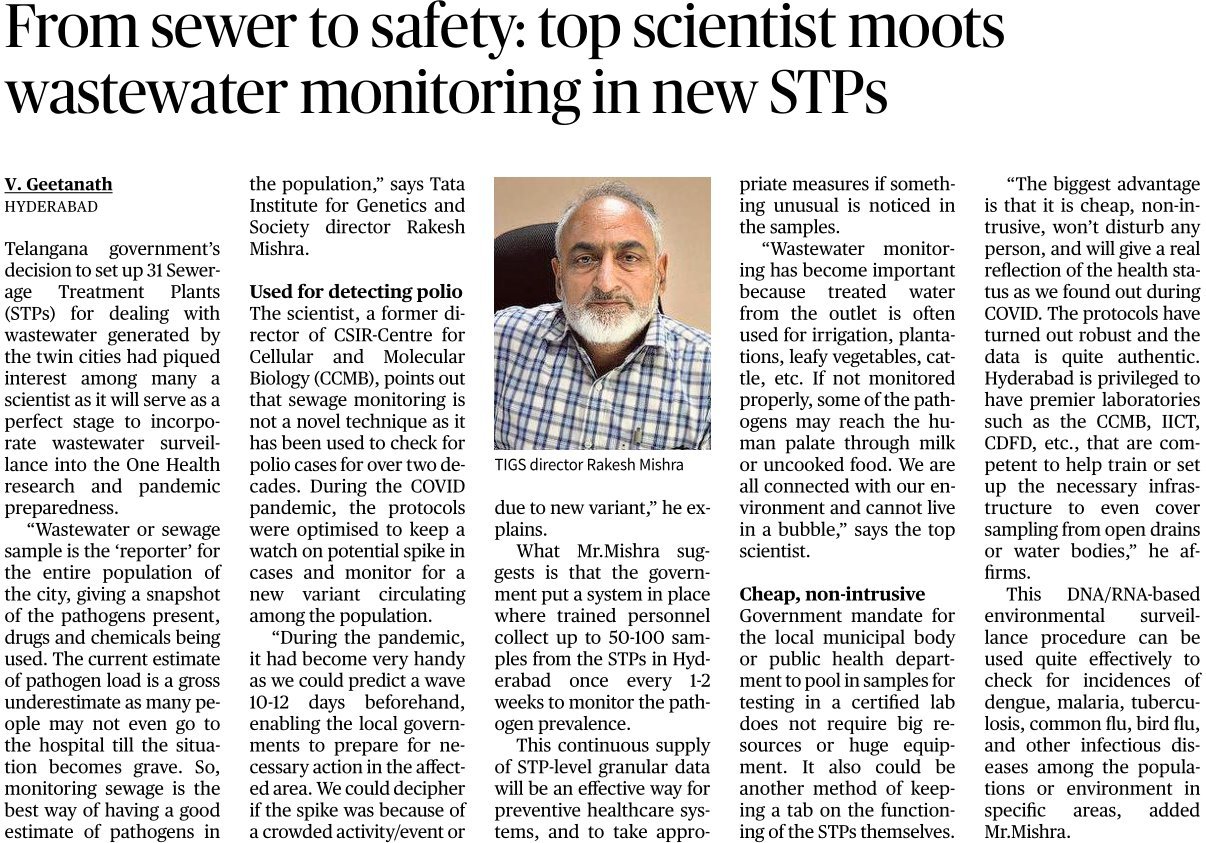Dr. Rakesh Mishra, Director, TIGS speaks to the Hindu Hyderabad on waste water surveillance and why it should be integrated into OneHealth research and pandemic preparedness.
“Wastewater or sewage sample is the ‘reporter’ for the entire population of the city, giving a snapshot of the pathogens present, drugs and chemicals being used. The current estimate of pathogen load is a gross underestimate as many people may not even go to the hospital till the situation becomes grave. So, monitoring sewage is the best way of having a good estimate of pathogens in the population,” says Tata Institute for Genetics and Society director Rakesh Mishra in the context of the decision by Telangana Government to set up 31 new Sewage Treatment Plants (STPs) for dealing with wastewater generated by the twin cities (Hyderabad and Secunderabad).
“The biggest advantage is that it is cheap, non-intrusive, won’t disturb any person, and will give a real reflection of the health status as we found out during COVID. The protocols have turned out robust and the data is quite authentic. Hyderabad is privileged to have premier laboratories like CCMB, IICT, CDFD, etc., that are competent to help train or set up the necessary infrastructure to even cover sampling from open drains or water bodies,” he affirms.
Read the full article here or below

